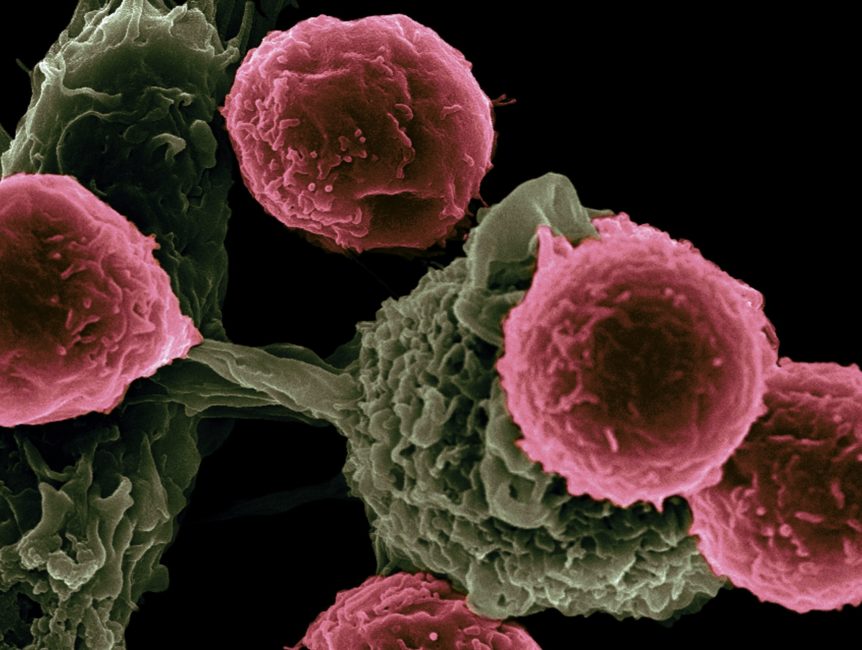August 15, 2022: “Novartis announced that the Phase III CANOPY-A study evaluating adjuvant treatment with canakinumab (ACZ885), an inhibitor of interleukin-1beta (IL-1β), in adult patients with stages II-IIIA and IIIB (T>5cm N2) completely resected (R0) non-small cell lung cancer (NSCLC) did not meet its primary endpoint of disease-free survival (DFS) versus placebo.
No unexpected safety signals were observed.
Findings from the trial will be presented at an upcoming medical meeting.
“We made an investment in the CANOPY program based on signals of reduced lung cancer incidence and mortality observed in the CANTOS study.
These positive signals supported the study of canakinumab as adjuvant treatment for early lung cancer,” said Jeff Legos, Executive Vice President, Global Head of Oncology & Hematology Development, Novartis.
“While we are disappointed CANOPY-A did not show the benefit we hoped for, every trial generates scientific evidence that supports future research and development, and we look forward to continuing to pursue new therapeutic options for people living with lung cancer, whose needs remain urgent and significant.
We thank the patients and clinical investigators whose time and commitment made this research possible.”
CANOPY-A is a Phase III, multicenter, randomized, double blind study that is evaluating the efficacy and safety of canakinumab as adjuvant treatment in patients with NSCLC stages II-IIIA and IIIB (T>5cm N2), per American Joint Committee on Cancer/The Union for International Cancer Control (AJCC/UICC) 8th edition staging, whose margins are free of cancer following surgery.
In the trial, 1,382 patients were randomized 1:1 to canakinumab, 200 mg subcutaneously every three weeks, or matching placebo for up to one year.
Patients completed standard-of-care adjuvant cisplatin-based chemotherapy and radiation therapy, if applicable, prior to randomization.
About canakinumab (ACZ885)
Canakinumab is a human monoclonal antibody that binds with high affinity and selectivity to human IL-1β and inhibits IL-1β activity by blocking its interaction with its receptors.
By inhibiting IL-1β, preliminary evidence suggests that canakinumab may suppress Pro-Tumor Inflammation to 1) enhance anti-tumor immune response; 2) reduce tumor cell proliferation, survival and invasiveness; and 3) impair angiogenesis.
Pro-Tumor Inflammation enables tumor development by driving cancer-causing processes and suppressing anti-tumor immune responses.
About the CANOPY program
Novartis launched the CANOPY study program after observing significantly lower than expected rates of lung cancer mortality among patients in the Phase III cardiovascular CANTOS trial.
The CANTOS trial evaluated canakinumab as a secondary prevention measure for cardiovascular events in patients following a heart attack.
Patients in the CANTOS trial also were at high risk for inflammatory cancers like lung cancer due to advanced age, smoking history, and other clinical risk factors.
Based on these findings, Novartis launched three large-scale, randomized, Phase III clinical trials and a Phase II clinical trial to investigate canakinumab as a potential treatment option in NSCLC.
Novartis and lung cancer
Lung cancer is one of the most common cancers worldwide, accounting for more than 2 million new cases diagnosed each year.
More people die of lung cancer every year than any other cancer.
There are two main types of lung cancer—small cell lung cancer (SCLC) and non-small cell lung cancer (NSCLC).
NSCLC accounts for approximately 85% of lung cancer diagnoses, and 30-55% of patients with early NSCLC develop recurrence despite resection.
Novartis is committed to working with the scientific and medical communities to reimagine the treatment of lung cancer and pursue advances in medicine that could extend the survival of people living with lung cancer.
Novartis is developing experimental therapies that block cancer growth; learning more about ways to activate the body’s immune system; increasing understanding of the relationship between chronic inflammation and tumor growth and progression; and exploring the potential for advanced nuclear medicine to fight the disease.”


